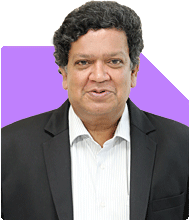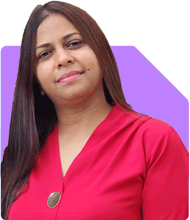Rebecca Pinto | Answer |Ask -Follow
Physiotherapist, Nutritionist - Answered on Sep 24, 2023
She has been helping patients with physical difficulties resulting from illness, injuries and ageing for over nine years.
She holds a bachelor's degree in physiotherapy from SKN College of Physiotherapy, Pune. Rebecca is also a certified PNF (Proprioceptive Neuromuscular Facilitation) practitioner and has trained in dry needling, spinal manipulation and cupping procedures as well.... more

I am 41 years old. I get jerking sensetion in shoulder area while sleeping. Due to this jerking my sleep gets disturbed. I always wake up very early morning. I consulted with many doctors but no relief get.Please advise for treatment
Jerking while sleeping is considered normal but if it still bothers you, you can show a psychiatrist for the same
You may like to see similar questions and answers below
Rebecca Pinto | Answer |Ask -Follow
Physiotherapist, Nutritionist - Answered on Jun 28, 2023
Dr Ashit Hegde | Answer |Ask -Follow
Consultant Physician, Internal Medicine and Critical Care Expert - Answered on Aug 24, 2023
Nidhi Gupta | Answer |Ask -Follow
Physiotherapist - Answered on Feb 04, 2025
Ramalingam Kalirajan |10906 Answers |Ask -Follow
Mutual Funds, Financial Planning Expert - Answered on Dec 19, 2025
Nayagam P P |10859 Answers |Ask -Follow
Career Counsellor - Answered on Dec 19, 2025
Ramalingam Kalirajan |10906 Answers |Ask -Follow
Mutual Funds, Financial Planning Expert - Answered on Dec 19, 2025
Ramalingam Kalirajan |10906 Answers |Ask -Follow
Mutual Funds, Financial Planning Expert - Answered on Dec 19, 2025
Ramalingam Kalirajan |10906 Answers |Ask -Follow
Mutual Funds, Financial Planning Expert - Answered on Dec 19, 2025
Radheshyam Zanwar |6751 Answers |Ask -Follow
MHT-CET, IIT-JEE, NEET-UG Expert - Answered on Dec 19, 2025
Radheshyam Zanwar |6751 Answers |Ask -Follow
MHT-CET, IIT-JEE, NEET-UG Expert - Answered on Dec 19, 2025
Samraat Jadhav |2514 Answers |Ask -Follow
Stock Market Expert - Answered on Dec 18, 2025
Reetika Sharma |432 Answers |Ask -Follow
Financial Planner, MF and Insurance Expert - Answered on Dec 18, 2025
Reetika Sharma |432 Answers |Ask -Follow
Financial Planner, MF and Insurance Expert - Answered on Dec 18, 2025


























